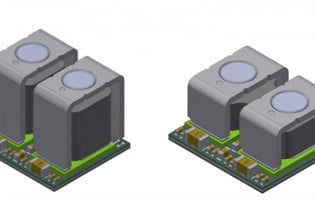Automotive-Grade 0.18-Micron BCD Process with up to 100V Operation
MagnaChip Semiconductor Corporation now offers a 0.18 micron BCD (Bipolar-CMOS-DMOS) 100V high voltage process. The features of this new BCD process compare favorably with previous generations of process technology.
The new BCD process requires three fewer layers of photo steps by process optimization, and has low specific on-resistance (Rsp) of power LDMOS up to 100V. Having 100V devices in BCD process is valuable as there are increasing demands to expand operation voltages and protection voltages to 100V in many applications, such as Power over Ethernet, ac-dc chargers, solar panel power ICs, and automotive battery systems.
In addition, the new BCD process offers automotive-grade reliability for dc-dc converters, LED drivers, motor drivers, battery chargers, and PMICs used in automotive electronics.
In power ICs that use BCD technologies, the area of power transistors like LDMOS occupies major chip area. And the specific on-resistance of power transistors -- which is defined as the product of total on-resistance and area of the device when a transistor is turned on -- is the key factor that determines overall chip area.
As a specialty analog foundry, MagnaChip has improved the specific on-resistance over the past 10 years to assist foundry customers achieve smaller chip sizes and reduce costs. Utilizing MagnaChip's proprietary deep-trench isolation technology and advanced device designs, the low specific on-resistance of 100V operation LDMOS was achieved on conventional silicon substrates without the use of more expensive SOI (Silicon-On-Insulator) substrates.
Overall, with these process advantages, this new 0.18 micron BCD 100V high voltage process can enhance cost effectiveness of customers' products.
To support power ICs for various applications like consumer, industrial, and especially automotive applications, this process technology was qualified based on the automotive-grade-qualification specification of AEC-Q100 with Grade1 temperature condition between -40 to 125 °C.
There are option devices in the new 0.18 micron BCD process to enhance design integration and flexibility. The option devices include a high performance bipolar transistor, high resistance poly resistor, tantalum nitride resistor with low temperature coefficient, metal-insulator-metal capacitor, metal-oxide-metal capacitor, electrical fuse, and multi-time programmable memory.
YJ Kim, Chief Executive Officer of MagnaChip, commented, "We are very pleased to offer our 0.18 micron BCD 100V process solution that combines both the advantages of high-performance as well as high reliability." Mr. Kim added, "Our goal is to continue to develop technologies with high performance and high reliability to cover a broad range of applications for our foundry customers."






